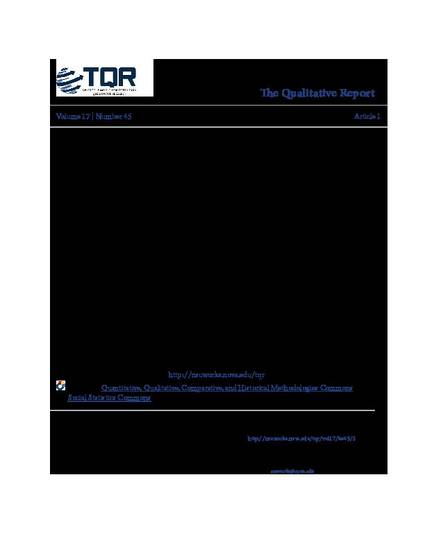
Past research has not adequately addressed the quality of life (QOL) of survivors of childhood cancer. The purpose of this study was to understand how QOL is experienced for individuals who have survived childhood cancer. Specific research questions included: (a) How do childhood cancer survivors define the concept of QOL and (b) What processes do childhood cancer survivors go through regarding their QOL? Researchers used grounded theory to analyze in-depth interviews conducted with eight survivors. Survivors use a process of specific action strategies and intervening conditions to manage impacts and effects, resulting in life enjoyment, or good QOL. The identification of this process has led to an emergent theory titled Interrelated Processes toward Quality of Life Theory.
Available at: http://works.bepress.com/janette-mcdougall/54/

This work is licensed under aCreative Commons Attribution-Noncommercial-Share Alike 4.0 License.
It was originally published in The Qualitative Report and can be found at http://nsuworks.nova.edu/tqr/vol17/iss45/1